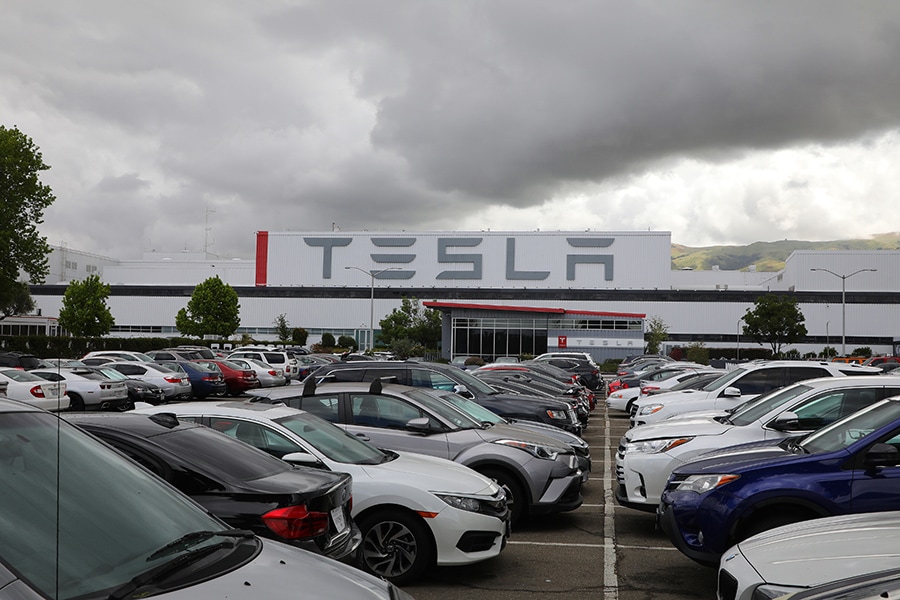
Coronavirus wrecked Tesla's momentum. Elon Musk is furious
Musk opened his California factory this week in defiance of local orders. He has also criticised the response to the pandemic as "dumb" and "fascist"
 The Tesla car manufacturing plant in Fremont, Calif., Tuesday, May 12, 2020. The employee parking lot was full on Tuesday after Elon Musk said the plant would restart in violation of a county order. (Jim Wilson/The New York Times)
The Tesla car manufacturing plant in Fremont, Calif., Tuesday, May 12, 2020. The employee parking lot was full on Tuesday after Elon Musk said the plant would restart in violation of a county order. (Jim Wilson/The New York Times)
A few months ago, everything seemed to be going Elon Musk’s way, as he presided over an upstart electric car company that was worth more than General Motors, Ford Motor and Fiat Chrysler combined.
That company, Tesla, had reported profits two quarters in a row, proving that it could earn money even as it grew. Its stock was surging. Musk opened a factory in China and was planning another in Germany. And his other business, SpaceX, was poised to become the first to ferry NASA astronauts to orbit from American soil since 2011, a trip scheduled for the end of this month.
Musk also claimed vindication by defeating a defamation lawsuit filed by a British diver he had called a “pedo guy.” He was staying out of trouble on Twitter, where he has long antagonized critics and regulators, who fined him $20 million in 2018 for statements he made there. His girlfriend was pregnant, too, with a son born this month.
But the coronavirus set Musk off. Society’s response to the pandemic was “dumb” and a “panic,” he said, arguing that the threat is overstated. And government stay-at-home orders were, in his view, unnecessarily stalling his plans to revolutionize the auto industry and help solve climate change. He attacked local officials in the San Francisco Bay Area for not letting him reopen Tesla’s factory, which he did this week anyway, in defiance of their instructions.
Musk, the billionaire entrepreneur who co-founded PayPal, has always been volatile. His latest attacks and statements have raised questions about Tesla’s financial health and his own judgment, but they also reflect a recognition of the influence he wields as one of the technology industry’s best-known iconoclasts.
©2019 New York Times News Service




